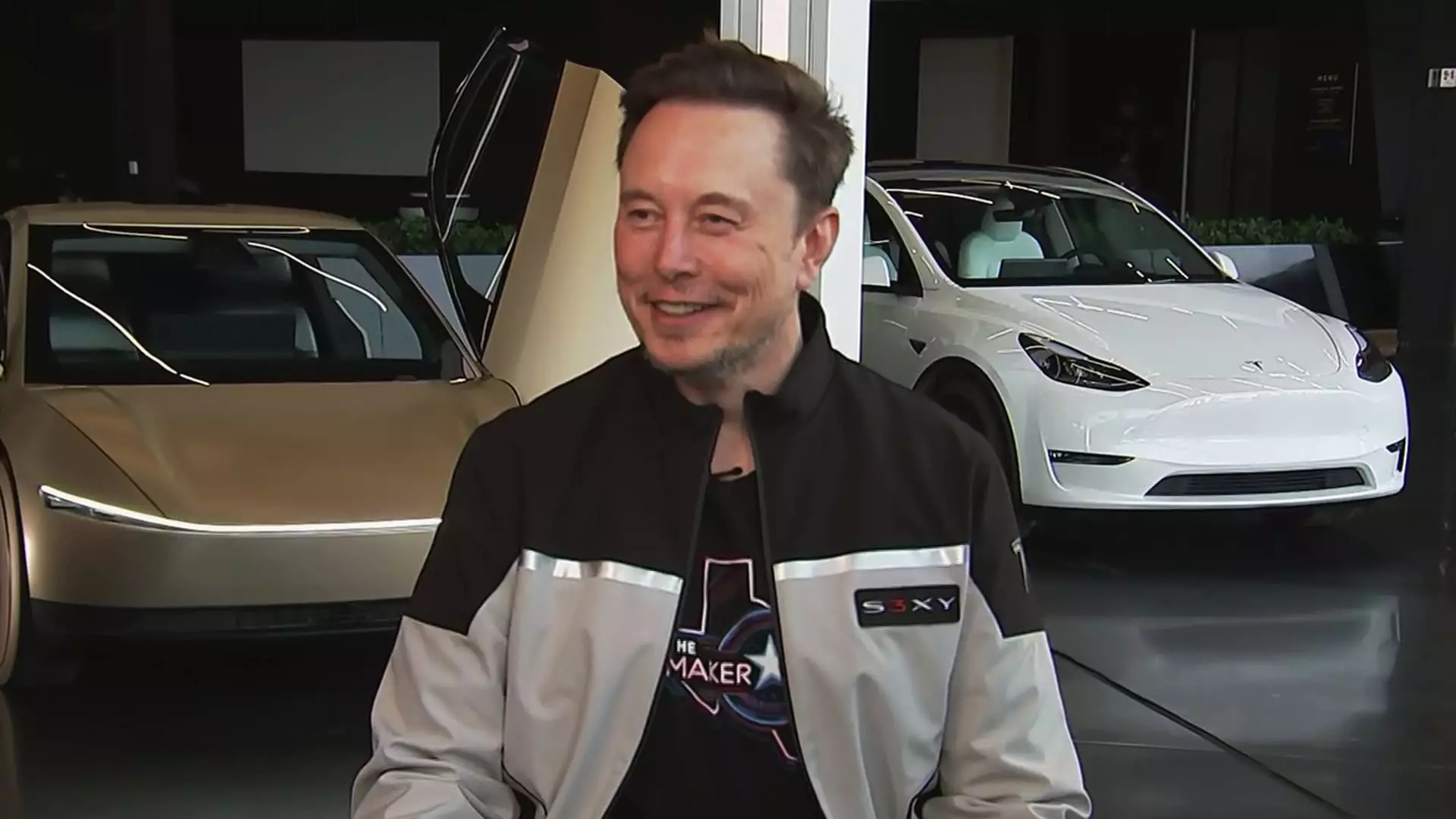Elon Musk’s recent declarations regarding the colossal investments in semiconductor resources by both Tesla and xAI underscore a critical turning point in the tech landscape. With an escalating reliance on chip giants like Nvidia and AMD, Musk is not merely discussing supply chains but is highlighting a deeper vulnerability within the artificially intelligent realms he is masterfully orchestrating. His assertion that the current limitations of AI hinge predominantly on chip availability is a profound admission. This dependence on semiconductor technology introduces not just a strategic challenge, but a looming existential risk for the future of advanced technologies. One cannot help but wonder whether Musk is steering the ship into an unsustainable dependency on external suppliers, a move that could backfire.
This dependency is particularly concerning in the light of Musk’s aggressive plans to dramatically scale xAI’s capabilities. The installation of 200,000 GPUs at his Colossus facility in Memphis already exhibits his ambitious vision for AI dominance. However, the projection of constructing a facility to house an astonishing million GPUs raises critical questions regarding feasibility and environmental impact. Does Musk truly comprehend the broader implications of such a power-hungry initiative?
Unraveling the Environmental Fallout
While city officials could shout praises for transforming Memphis into a “high-tech manufacturing hub,” the grassroots protests against xAI’s operational methods reveal a starkly different narrative. Local communities are rightfully concerned about the environmental consequences of using natural gas-burning turbines, which have triggered a crisis in public health due to their nitrogen oxide emissions. This begs an essential inquiry: at what point does progress become retrogression? As Musk champions innovation about the future, we must scrutinize his commitment to sustainability in the present.
Environmental advocates, armed with claims of potential violations of the Clean Air Act, shine a spotlight on the dichotomy inherent in Musk’s actions. Could it be that his aspirations for cutting-edge “breakthrough innovation” are trampling over fundamental environmental protections? Moreover, the blatant disregard for local ecology raises red flags about the ethical dimensions of Musk’s technological utopia. In an age where climate change is an undeniable reality, should the pursuit of AI supremacy necessitate sacrificing community health and environmental standards?
The Culture of Innovation: A Double-Edged Sword
Musk attributes America’s edge in breakthrough innovation to a unique cultural trend that encourages questioning authority. While he champions this ethos, his corporation’s operations sometimes suggest a paradoxical stance—an authority figure dominating vast sectors of the tech landscape while undermining the voices of local communities. The juxtaposition of innovation against rigid corporate bureaucracy poses a challenge: can the innovative spirit reconcile with ethical business practices?
If the future of AI hinges on questioning authority, it must equally embrace accountability. The narrative that Musk weaves speaks to challenging norms, yet when faced with scrutiny over air quality and community health, the dialogue often turns silent. As such, the so-called “Muskonomy” inherently embodies contradictions—promoting groundbreaking technology while simultaneously shadowing the detrimental impacts on the communities that sustain such advancements.
Fleeting Promises and Future Shortages
Musk’s anticipation of an impending “fundamental electricity generation shortage” by mid-2026 serves as a stark reminder that the road to AI supremacy is fraught with peril. The very fabric of innovation is woven with the threads of sustainability. If the U.S. lags in power generation investments compared to China, where does that leave the tech revolution? Shouldn’t breakthroughs be synergized with responsibility, rather than an urgent scramble for resources?
The fate of immense investments gambled on chips, GPUs, and supercomputers amplifies the stakes. While Musk insists that questioning authority fuels progress, I argue that it is, in reality, a balancing act crucial for cultivating a future that does not come at the expense of ethical dimensions. Imagine a landscape where technological giants like Musk tread carefully, aware of their environmental footprints even as they gallivant into the unknown.
Musk’s dialogue on innovation is important, yet its integration with activism for sustainable practices must be equally emphasized. As society stands at the crossroads of unprecedented growth in AI, we must ask ourselves: Will we witness Elon Musk’s legacy as a visionary or a conqueror whose ambitions have diminished our planet?


Leave a Reply